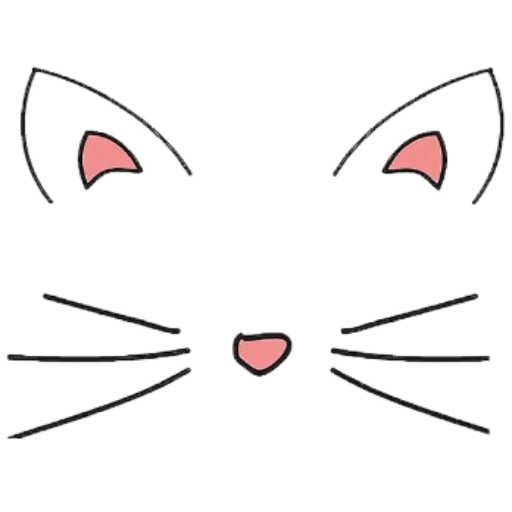The Feline Guardians of Wellness: Cats and Their Role in Holistic Health Practices
- No Comments
In the realm of holistic health, where well-being is seen as a harmonious balance of body, mind, and spirit, an unexpected yet profound influence has been observed: the presence of cats. These enigmatic creatures, long revered in various cultures for their mysterious and calming demeanor, are now finding their place as integral components of holistic health practices.
The ancient Egyptians, who held cats in high esteem, may have been onto something with their reverence for these animals. Today, practitioners of holistic health are increasingly recognizing the benefits that cats can offer in therapeutic settings. The simple act of petting a cat has been shown to reduce stress levels and lower blood pressure. This physical interaction releases oxytocin in the human brain, a hormone associated with love and bonding, which can lead to reduced anxiety and an enhanced sense of well-being.
Beyond the physical benefits, cats are also believed to possess a unique energy that can contribute to emotional healing. Their intuitive nature allows them to sense emotional distress in humans, often providing comfort through their presence and purring. The sound of a cat purring, which occurs at a frequency range of 25 to 150 Hertz, has been associated with healing vibrations that can promote tissue regeneration and pain relief. This phenomenon, sometimes referred to as “the healing purr,” has intrigued scientists and holistic healers alike.
The presence of cats is also being integrated into practices such as meditation and yoga. Many yoga practitioners have reported that their feline companions bring a calming influence to their sessions, occasionally joining in with poses or simply observing from a peaceful perch. The mindful presence of a cat can deepen the meditative experience, helping individuals focus and find tranquility in their practice.
In therapeutic environments, cats are increasingly being incorporated into animal-assisted therapy programs. These programs have seen success in various settings, from hospitals to rehabilitation centers, where cats provide companionship and emotional support to patients. Their gentle and non-judgmental presence can be particularly beneficial for individuals dealing with trauma, depression, or loneliness, helping to foster a sense of connection and purpose.
Moreover, the integration of cats into holistic health practices is supported by a growing body of research. Studies have shown that individuals who own cats are less likely to suffer from heart attacks and strokes, potentially extending their lifespan. This correlation between cat ownership and improved health outcomes underscores the potential impact these animals can have on human wellness.
While cats may not have the same level of training as therapy dogs, their natural behaviors and dispositions make them uniquely suited to holistic health environments. As more people seek alternative and complementary approaches to health, the role of cats in promoting physical, emotional, and spiritual well-being continues to gain recognition.
In conclusion, the contribution of cats to holistic health practices is a fascinating intersection of science and intuition. Their presence offers a gentle reminder of the interconnectedness of all living beings and the profound impact that animals can have on human health. As this field continues to evolve, the role of cats as guardians of wellness is likely to expand, bringing peace and healing to those who embrace their quiet, comforting companionship.

In the realm of holistic health, where well-being is seen as a harmonious balance of body, mind, and spirit, an unexpected yet profound influence has been observed: the presence of cats. These enigmatic creatures, long revered in various cultures for their mysterious and calming demeanor, are now finding their place as integral components of holistic health practices.
The ancient Egyptians, who held cats in high esteem, may have been onto something with their reverence for these animals. Today, practitioners of holistic health are increasingly recognizing the benefits that cats can offer in therapeutic settings. The simple act of petting a cat has been shown to reduce stress levels and lower blood pressure. This physical interaction releases oxytocin in the human brain, a hormone associated with love and bonding, which can lead to reduced anxiety and an enhanced sense of well-being.
Beyond the physical benefits, cats are also believed to possess a unique energy that can contribute to emotional healing. Their intuitive nature allows them to sense emotional distress in humans, often providing comfort through their presence and purring. The sound of a cat purring, which occurs at a frequency range of 25 to 150 Hertz, has been associated with healing vibrations that can promote tissue regeneration and pain relief. This phenomenon, sometimes referred to as “the healing purr,” has intrigued scientists and holistic healers alike.
The presence of cats is also being integrated into practices such as meditation and yoga. Many yoga practitioners have reported that their feline companions bring a calming influence to their sessions, occasionally joining in with poses or simply observing from a peaceful perch. The mindful presence of a cat can deepen the meditative experience, helping individuals focus and find tranquility in their practice.
In therapeutic environments, cats are increasingly being incorporated into animal-assisted therapy programs. These programs have seen success in various settings, from hospitals to rehabilitation centers, where cats provide companionship and emotional support to patients. Their gentle and non-judgmental presence can be particularly beneficial for individuals dealing with trauma, depression, or loneliness, helping to foster a sense of connection and purpose.
Moreover, the integration of cats into holistic health practices is supported by a growing body of research. Studies have shown that individuals who own cats are less likely to suffer from heart attacks and strokes, potentially extending their lifespan. This correlation between cat ownership and improved health outcomes underscores the potential impact these animals can have on human wellness.
While cats may not have the same level of training as therapy dogs, their natural behaviors and dispositions make them uniquely suited to holistic health environments. As more people seek alternative and complementary approaches to health, the role of cats in promoting physical, emotional, and spiritual well-being continues to gain recognition.
In conclusion, the contribution of cats to holistic health practices is a fascinating intersection of science and intuition. Their presence offers a gentle reminder of the interconnectedness of all living beings and the profound impact that animals can have on human health. As this field continues to evolve, the role of cats as guardians of wellness is likely to expand, bringing peace and healing to those who embrace their quiet, comforting companionship.


